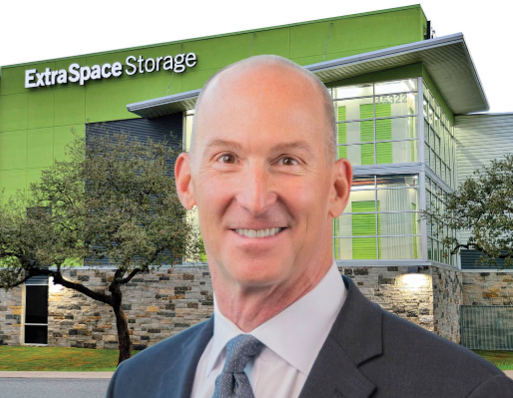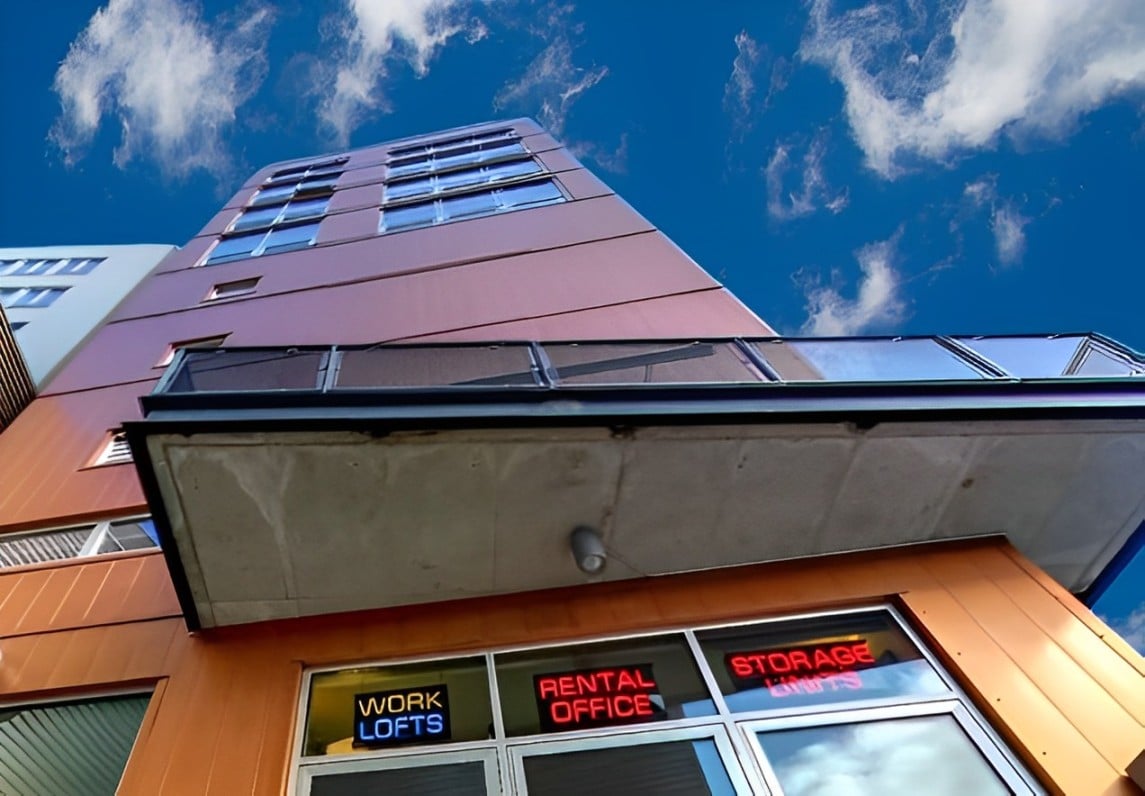Paul Schween, Author/Speaker/Trainer/Sales Professional
With the start of the new year, many self-storage owners and operators are implementing new or enhanced technologies at their facilities to streamline operations through automation and increase customer conveniences. They have budgets in place to offer customers the ability to make online unit reservations and payments. They may even install self-storage kiosks to cater to the do-it-yourself tenants who prefer to utilize self-service options.
While there are countless ways technology can improve your self-storage facility, Paul Schween, a sales professional, author, trainer, and speaker based in Gilbert, Ariz., urges the industry not to lose sight of the fact that self-storage is—and should remain—a people business.
“Self-storage is slowly becoming a commodity,” says Schween, “so, whether you’re a high-tech facility or a mom-and-pop shop, you need good people on board who can sell.”
There is a consensus that self-storage managers can “make or break” a facility, and Schween doesn’t see that changing anytime soon. As a matter of fact, with increased competition, and more self-storage developments on the horizon, the need for trained professional managers will become more necessary than ever to compete.
Although some self-storage customers prefer to utilize technology to find storage sites, make reservations, and submit payments, there are still plenty of patrons who choose to interact with managers and staff. For instance, baby boomers and older generations are less likely to use a mobile app to reserve a unit or operate a self-service kiosk to pay their rent than younger millennial tenants. Nevertheless, most all customers still want to communicate with a human when
they need guidance.
According to the 2018 Self-Storage Almanac, 51 percent of the customers surveyed for the SSA 2017 Self Storage Demand Study first contacted a self-
storage facility by making an in-person visit. What’s more, 34 percent made first contact by telephone. Therefore, when 85 percent of customers first connect with facility staff in person or over the phone before renting units, the need for quality sales training becomes obvious.
“This, coupled with the fact that technology will only decrease face-to-face sales time, thus shrinking sales cycles, further complicates matters,” Schween says, adding that a reliance on technology can result in apathetic managers and an atrophy of critical skill sets. As an example, they may be so engrossed in their smartphones or other technology that they allow incoming phone calls to slip to voicemail.
“Technology simply can’t sell for you,” says Schween. “It can augment your sales and enhance service, but it should never replace people or do the job for a manager.”
Invest In The Art Of People Persuasion
If your goal for 2018 is to boost your facility’s bottom line by selling more retail products, capturing more rentals, and reducing concessions, then it’s time to start investing in your people and providing them with the tools they need to achieve those objectives.
“There’s a greater need for sales training in the self-storage industry,” Schween says, “and the ability to fully engage prospects is necessary to maintain price integrity and push economic capacity.” Relying on “old school” best practices or past experience will no longer get the job done.
According to Schween, the main objectives of sales training should be consistently making great first impressions and learning to use quality questioning procedures to fully engage prospects to increase sales and genuinely serve customers. This can be achieved by developing a consumer-centric approach to sales and service. “Leading and/or open-ended questions offer another profitable means of generating sales and a means to stay focused with a consumer-centric approach to business,” he says.
Indeed, the golden rule of customer service is “the customer is always right,” but, when it comes to self-storage, a product with which prospective tenants may not be entirely comfortable, managers must be able to accurately decipher their needs and suggest the products and services that will match their situation and the belongings they plan to store. Therefore, self-storage managers should be trained on probing techniques and how to handle reluctantency.
“The three skills that generate the most value in sales and quality service are starting with an excellent USP (Unique Selling Proposition), asking strategic questions and effectively managing objections,” he says. Schween’s article, “Serve More To Sell More,” which was featured in the First Quarter 2017 issue of Self-Storage Now!, highlights how asking the right questions requires a strategy and provides a list of appropriate questions to ask prospective tenants.
One of the most important questions that self-storage managers should be asking is: What are you going to be storing? Obviously, the answers to this question vary, but they will always offer numerous sales opportunities—from recommending climate-control features to selling retail items to renting shelving. Proper training will help self-storage managers think on their feet and apply what they learn to real-world scenarios while enhancing service simultaneously.
“Teaching self-storage managers people persuasion skills will have enormous benefits,” say Schween, who adds that there are advantages beyond increased revenue. “There are psychological benefits of training.”
For starters, quality training is known to boost confidence and enhance morale. As Schween notes, “Self-storage managers can gain self-assurance from training and, in turn, close more sales while improving customer service.” Managers who improve their sales numbers tend to be more motivated in other aspects of their job, especially when incentives are in place.
Schween also mentions that quality sales training is a practical way to fine-tune the image of your business. “Training can complement your efforts to establish a brand and create a culture,” he says, “but it needs to be a regular part of the routine if you want to see lasting change. For long-term results, it needs to be massaged into the day-to-day activities. Repetition is key. One event isn’t sufficient. Managers need to hear it, write it, script it, role play, and rehearse it. This may sound weighty, but it doesn’t take a huge concerted effort to integrate good techniques–they either work or they don’t for the individual or the facility! Take what works and incorporate it into a regimented routine.”
Training Options
Nowadays, there are numerous training products available. Many of which are made specifically for the self-storage industry. This magazine and MiniCo Publishing’s other publications are a few of those educational resources. MiniCo also offers webinars, blogs, workshops, apps, free articles, and various videos. Furthermore, MiniCo has plans to produce and disseminate new on-demand training videos this coming year.
“You need to look at various training techniques to see what works best,” says Schween, who will be assisting with the videos. “When people see, hear, and participate, they get a feel for how things are done, and the likelihood of assimilation is enhanced.”
The Self Storage Association (SSA) and some state self-storage associations provide diverse forms of training courses, seminars/webinars, published material, and videos. While many contributions are made, and much can be learned from these best practices, it’s rare to find tools that allow owner operators and managers to literally build their own sales and service platform. Schween describes his book “Serve More to Sell More”, which is scheduled to be released this April, as a means to fill this void.
In addition, some of the industry’s software vendors have training courses, blogs, webinars, help desks, and online libraries specifically designed to augment their systematic approach. These tools offer great advice on how to best apply sales and service strategies with their technology.
Schween notes that selling is a highly personalized skill that is most effective when it matches one’s personality. “For best results, one must take ownership of their own approach to maximize their effectiveness,” he says. “This is how average producers rise to become top producers and how a new level of professionalism is achieved. You hardly see any larger operations without a fully-developed approach to sales and service combined with their selected technology.”
Make It Count!
While some training does come at a cost, any positive investment made into your people and the future of your self-storage business is always money well spent. It is a win for managers, a win for customers, and a win for the company. It sets precedence and creates a culture. Training also demonstrates a caring attitude towards all involved. Some owner operators might contend that training doesn’t have a lasting impact and people are going to leave, but Schween points out that the only thing worse is not training them and they stay.
“Training is necessary to empower your employees,” Schween says. “Give them the skill sets they need to succeed!”
Erica Shatzer is the editor of Mini-Storage Messenger, Self-Storage Now!, and Self-Storage Canada.
More Content
Popular Posts
The self storage industry is in a precarious...
The REITs new pricing strategy – lowering...
With the approval of both companies’...
Recent Posts
Ramey Jackson is the CEO of Janus...
Imagine preparing to move and needing to...
Owning or managing a self-storage facility...
Helen Keller is quoted as saying, “Alone we...
It’s often been said that “opportunity is...
There’s a saying in Florida that there are...
The landscape of the self-storage industry...














